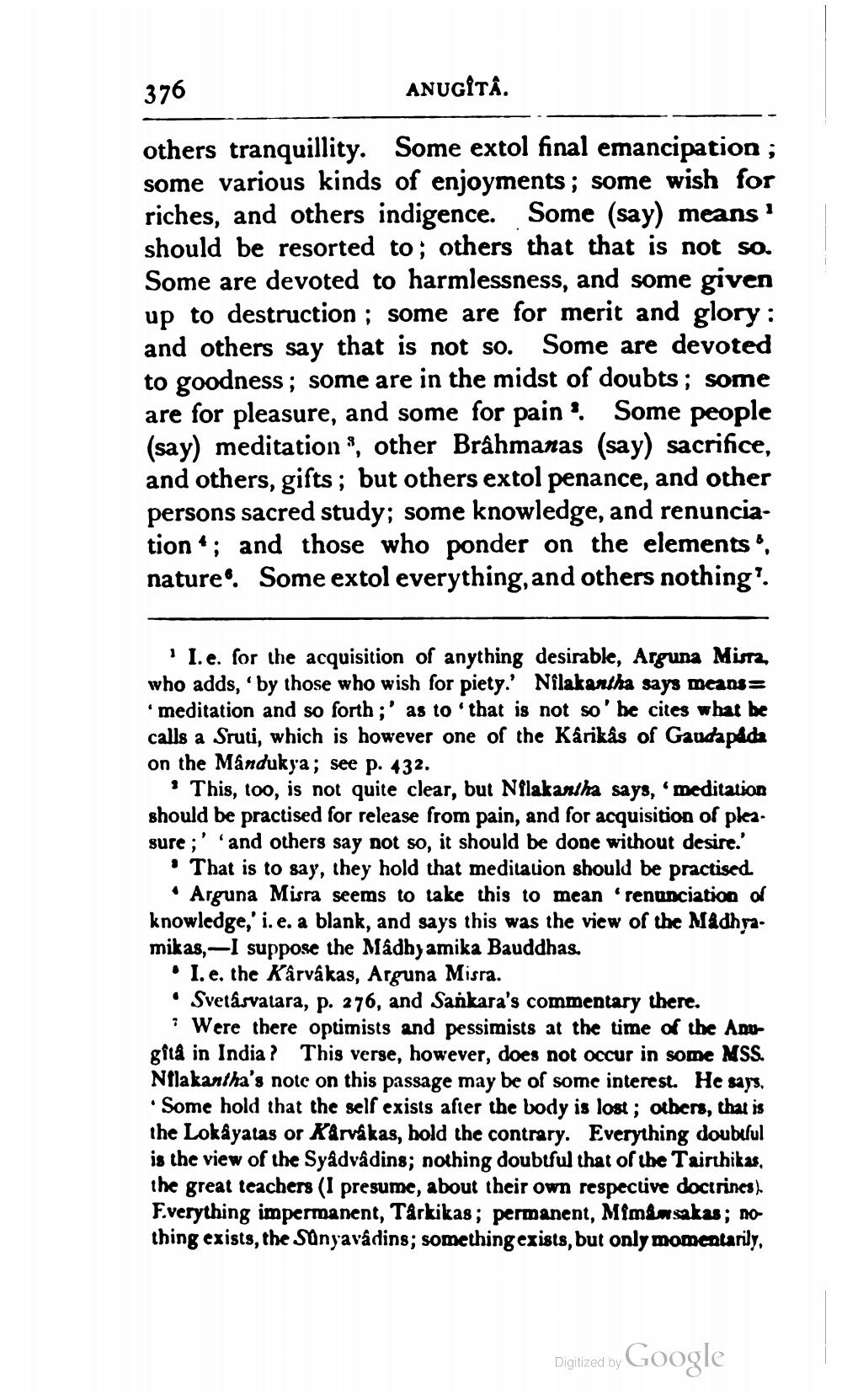________________
376
ANUGÍTA.
others tranquillity. Some extol final emancipation ; some various kinds of enjoyments; some wish for riches, and others indigence. Some (say) means' should be resorted to; others that that is not so. Some are devoted to harmlessness, and some given up to destruction ; some are for merit and glory: and others say that is not so. Some are devoted to goodness; some are in the midst of doubts; some are for pleasure, and some for pain! Some people (say) meditations, other Brâhmanas (say) sacrifice, and others, gifts; but others extol penance, and other persons sacred study; some knowledge, and renunciation*; and those who ponder on the elements, nature'. Some extol everything, and others nothing?
-
II.e. for the acquisition of anything desirable, Arguna Miste, who adds, by those who wish for piety.' Nilakantha says means=
meditation and so forth;' as to that is not so'be cites what be calls a Sruti, which is however one of the Karikas of Gandapada on the Mandukya; see p. 432.
This, too, is not quite clear, but Nflakantha says, meditation should be practised for release from pain, and for acquisition of plea. sure ;' and others say not so, it should be done without desire.'
"That is to say, they hold that meditation should be practised
• Arguna Misra seems to take this to mean renunciation or knowledge,' i.e. a blank, and says this was the view of the Madhya. mikas,- I suppose the Madhyamika Bauddhas.
• I. e. the Karvakas, Arguna Misra. • Sveta svalara, p. 276, and Sankara's commentary there.
: Were there optimists and pessimists at the time of the Amugita in India? This verse, however, does not occur in some MSS. Nflakantha's note on this passage may be of some interest. He says, • Some hold that the self exists after the body is lost; others, that is the Lokåyatas or Kårvákas, bold the contrary. Everything doubtful is the view of the Syâdvådins; nothing doubtful that of the Tainthikas, the great teachers (I presume, about their own respective doctrines) F.verything impermanent, Tarkikas; permanent, Miminsakas; no thing exists, the Sünyavadins; something exists, but only mom catarily,
Digitized by Google




